Do you remember when I told you about my upcoming solo travel adventures? So today I have started the first one!
I came to Lisbon in the afternoon and I was already excited about the city in the plane as we had stunning views during landing.
Hotel where I'm staying is situated in the city center and most of the main attractions are within walking distance.
Let me tell you.. I have never walked so many stairs up and down the hills as today. Lisbon is built on seven hills and you will feel it in your legs if you decide to walk instead of using public transportation.
Of course I have prepared my travel itinerary in great detail but I decided to walk around and get to know the city without the map before visiting The Castelo de S. Jorge.
Well, the truth is that I did have a map but I forgot it in a cafe where I went for late lunch right after I left the hotel and I didn't want to waste time by getting back so I improvised 😊
Let's start the adventure!
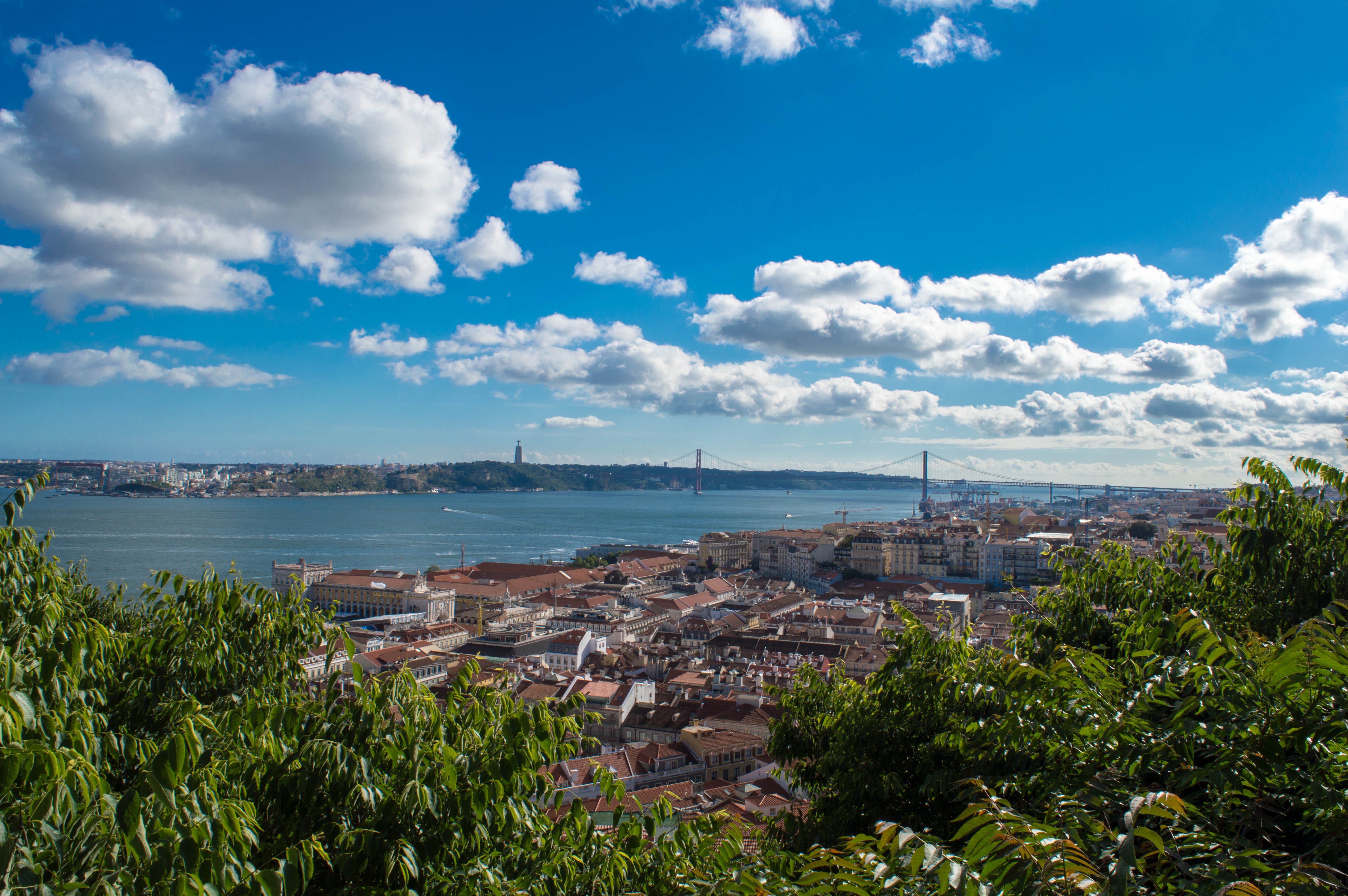
ISO 100 1/250 sec. f/14 18 mm
It was a very long walk today and I've done almost 21,000 steps.
During these hours of walking I have seen different styles of architecture. What really caught my attention are beautiful azulejos on most of the buldings.
In Portugal the use of azulejos to cover walls and floors as a means of rendering spaces more aesthetically pleasing look dates back to the end of the 15th century. In the second half of the 16th century this trend became widespread with the commencement of local manufacturing and thus became a finishing option that now has over five centuries of tradition.
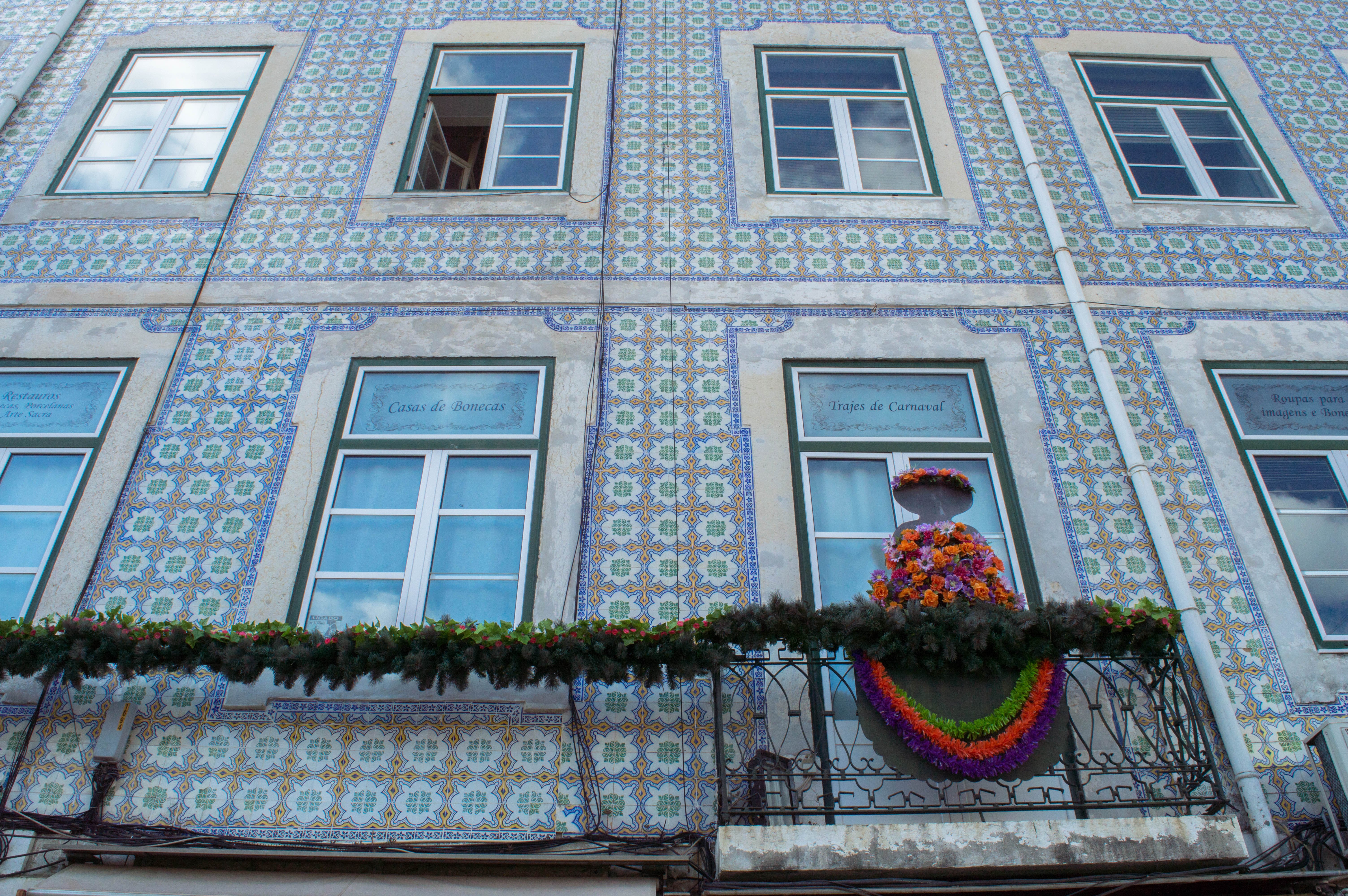
ISO 100 1/320 sec. f/13 18 mm
You can see many different types of azulejos, with various colors and themes.

ISO 100 1/200 sec. f/13 18 mm
There are many big squares in the city center. On my way to the castle I have visited Rossio square lined with purple blooming trees. The official name is Pedro IV Square but locals are using Rossio (meaning 'large public square') instead.
Do you like classical music? Then don't miss to visit the neoclassical National Theater Dona Maria II situated in Rossio. It was built between 1842 and 1846, with a pediment crowned by a statue of playwright Gil Vicente, known as "Portugal's Shakespeare."
The theater replaced the old Estaus Palace, headquarters of the Portuguese Inquisition since mid-fifteenth century.

ISO 100 1/320 sec. f/14 23 mm
The Rossio square is dominated by majestic Column of Pedro IV known as “the Soldier King”. At the base of the column, there are the four female allegorical figures of Justice, Wisdom, Strength, and Moderation, qualities attributed to Pedro IV.
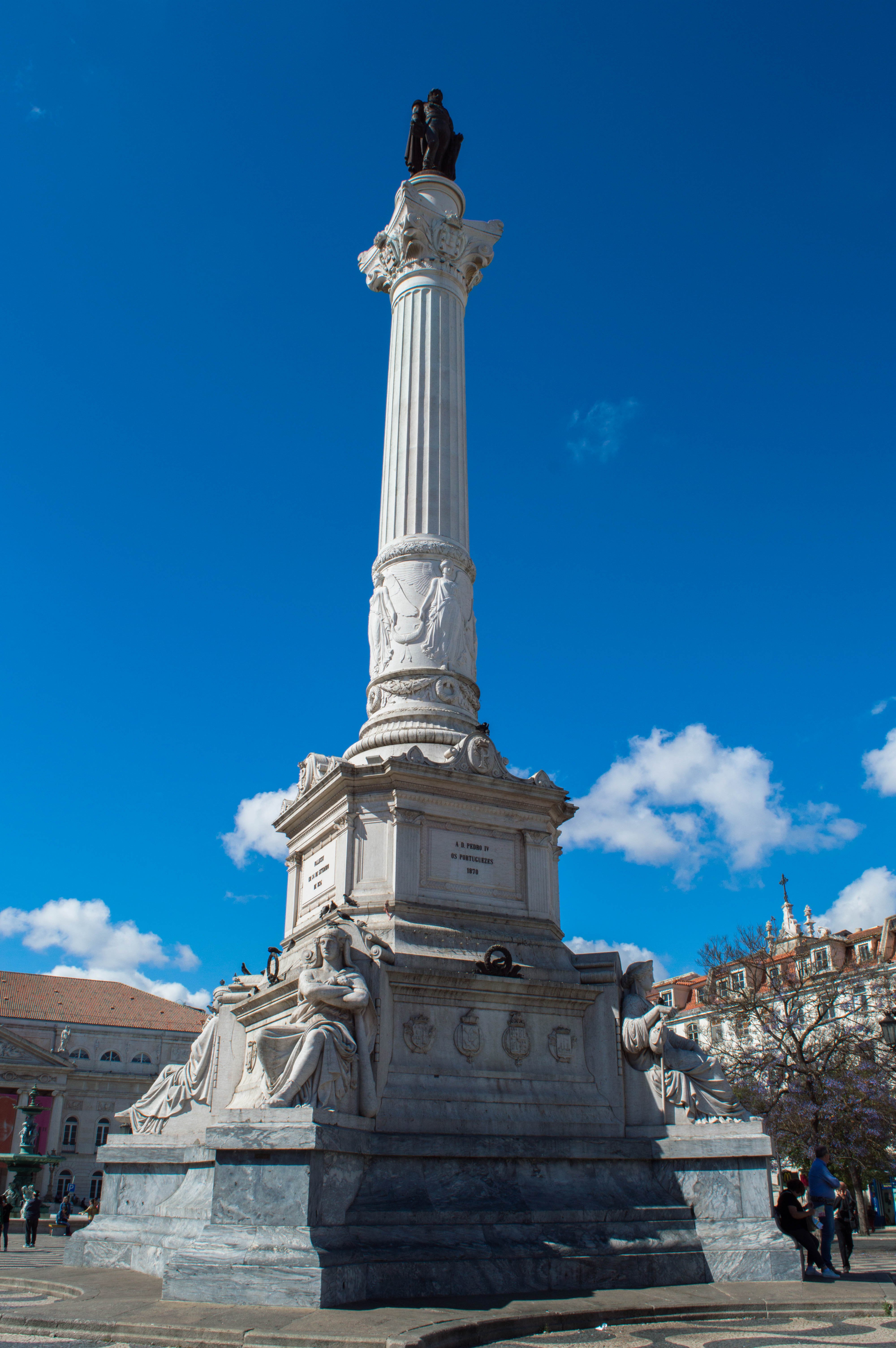
ISO 100 1/320 sec. f/14 18 mm
When I travel I like to visit various churches and cathedrals as you can learn a great deal of history inside of them.
The Church of São Domingos, originally built in the 13th century, is a mix of architectural styles and periods, thanks in part to extensive rebuilding after two natural disasters: an earthquake in 1755 and a fire in 1959.
This is the most beautiful church that I have ever visited. The inside of the church is completely different to what you would expect to see when you are in front of the church. Its interior is rife with gouged pillars, decrepit walls, and battered sculptures, all of which look even more ethereal when lit by a sea of candles.
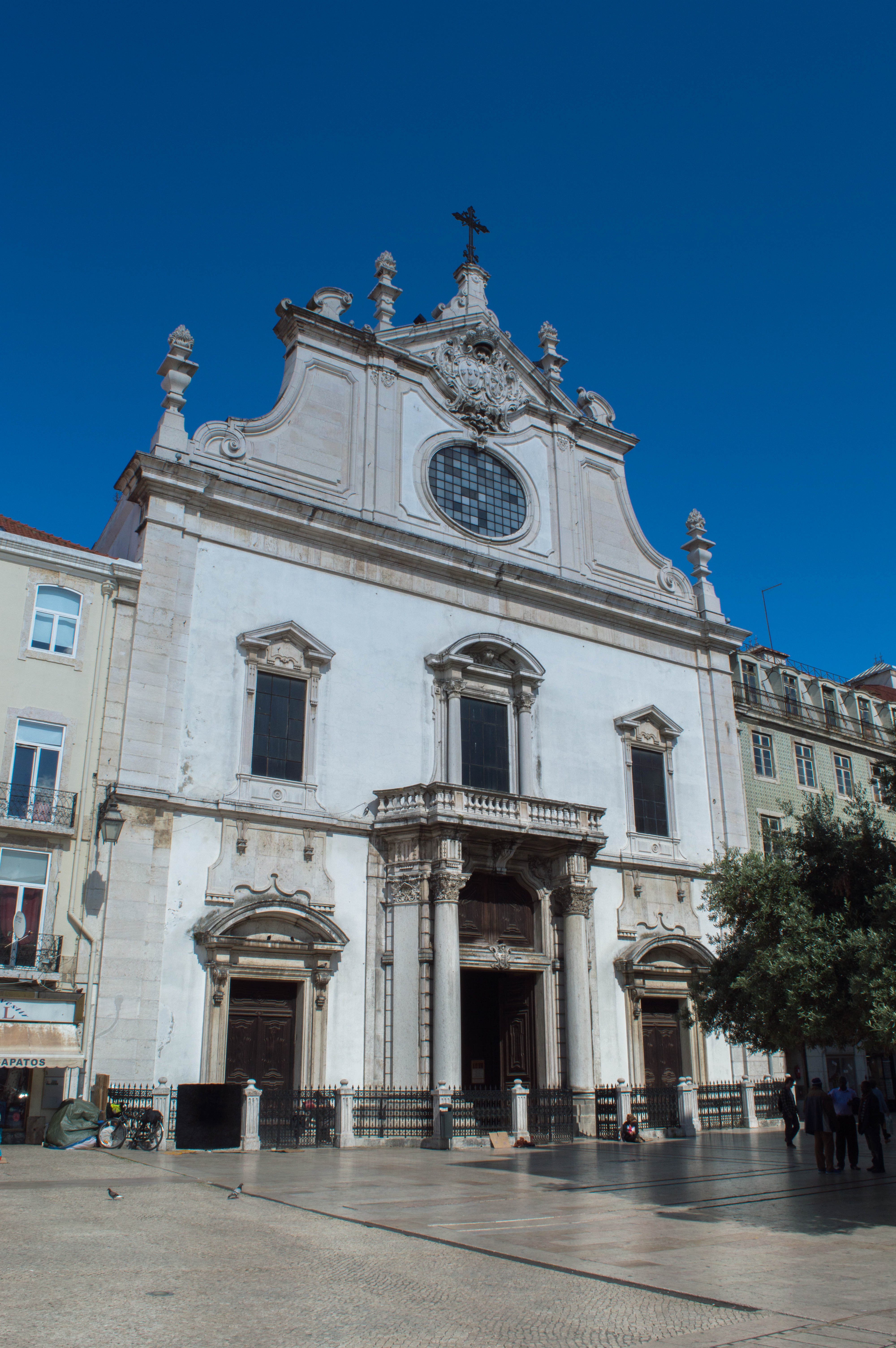
ISO 100 1/320 sec. f/16 18 mm
From the Church of São Domingos I went directly to the castle.
There are many charming cafes and restaurants in the neighborhood on the way up. The streets are very steep with sharp turns that follow the natural lie of the land and provide shelter against the strong, cold winds that often hits the city.

ISO 100 1/320 sec. f/13 20 mm
After what seemed like a never ending way up I have reached my destination - The Castelo de S. Jorge. The ticket is EUR 8.50 per person. The price is reasonable for what you will get to see.
You can admire the entire city and Tagus, the longest river in the Iberian Peninsula.
Did you know that Lisbon was hit by a big earthquake in 1755, also known as the "Great Lisbon Earthquake" or "Disaster at Lisbon"?
When the earthquake arrived, most of Lisbon's population were praying in six magnificent cathedrals, including the great Basilica de Sao Vincente de Fora. Within minutes, this great thriving city-port of Lisbon, capital of Portugal and of the vast Portuguese empire and seat of learning in Europe, was reduced to rubble.Immediately after the earthquake, many townspeople fled to the waterfront, believing the area safe from fires and from falling debris from aftershocks. Some of them looked for safety on the sea by boarding ships moored on the Tagus River.
But about 40 minutes after the quake, an enormous tsunami wave engulfed the harbour and downtown, rushing up the Tagus river, "so fast that several people riding on horseback were forced to gallop as fast as possible to the upper grounds for fear of being carried away". The area between Junqueria and Alcantara in the western part of the city was the most heavily damaged by the wave, but further destruction occurred upstream.
Then the first tsunami wave was followed by two more waves which hit the shore, each dragging people and debris out to sea and leaving exposed large stretches of the river bottom. Boats overcrowded with refugees capsized and sank. The maximum height of the waves was estimated at 6 meters.
The 1755 Lisbon earthquake was one of the most destructive and deadly earthquakes in history, killing more than a third of the entire population of the Portuguese capital. Tens of thousands of Portuguese who survived the earthquake were killed by the tsunami triggered by the earthquake.
The city is restored now and you can relax on a bench with a glass of wine and enjoy the beauty around you.
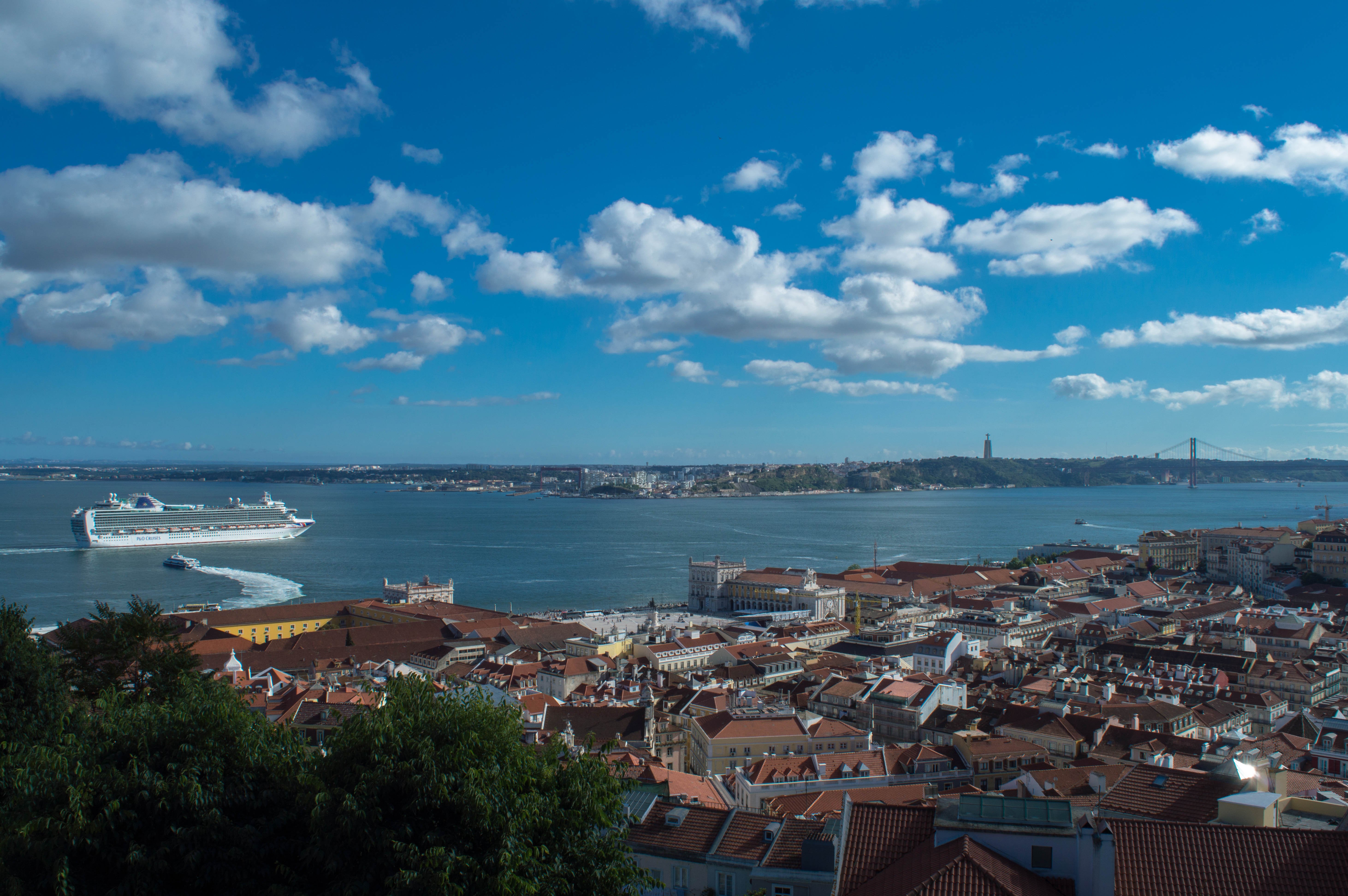
ISO 100 1/250 sec. f/14 18 mm
The wind was very strong and the weather was constantly changing. One moment it was very cold so that you had to put your jacket on while in a couple minutes you wished to sit on a beach in your swimming suit.
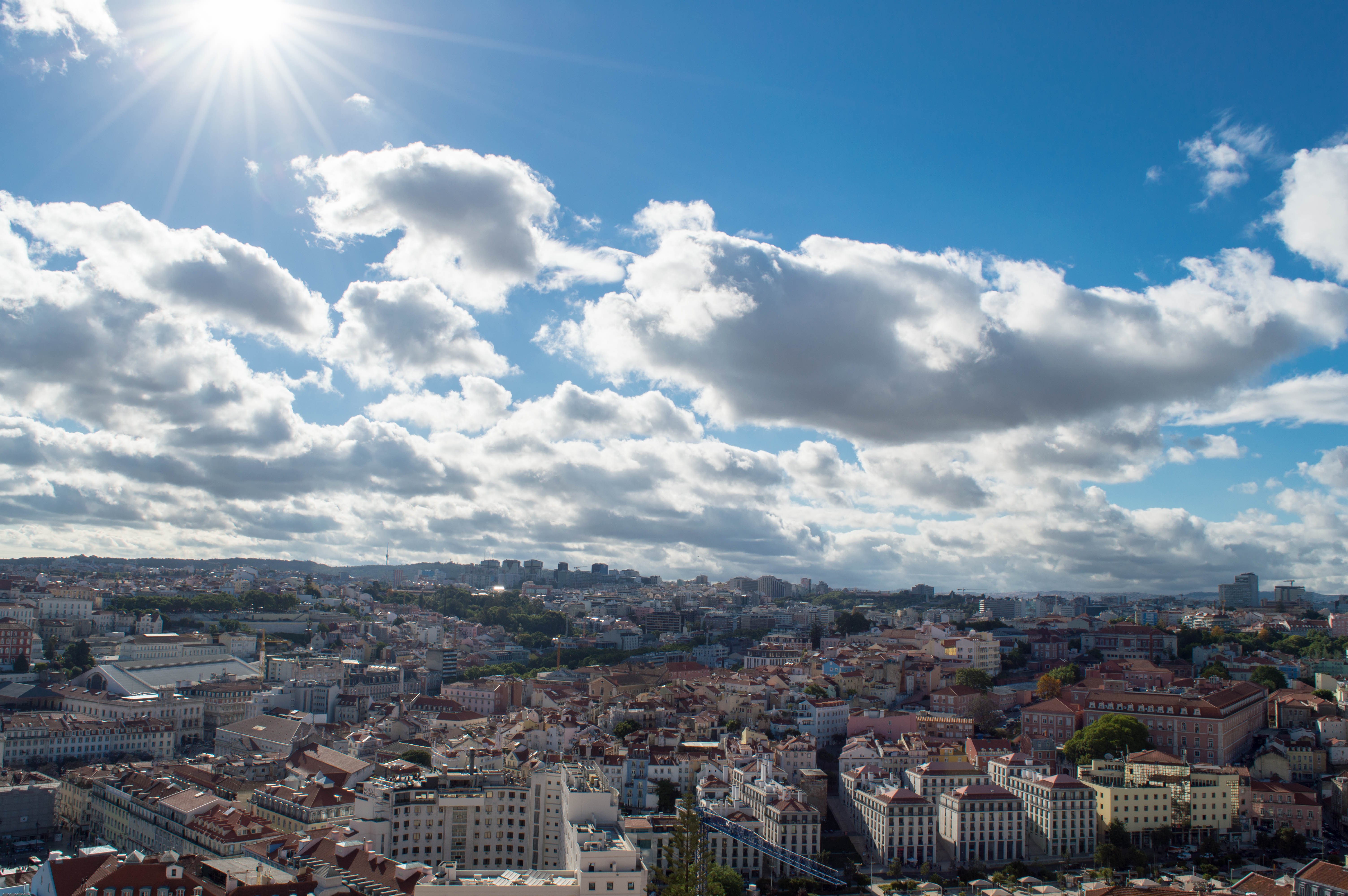
ISO 100 1/250 sec. f/13 18 mm
Due to its exceptional location, Castelo de S. Jore stands out among Lisbon's viewpoints for its unique and majestic sights.
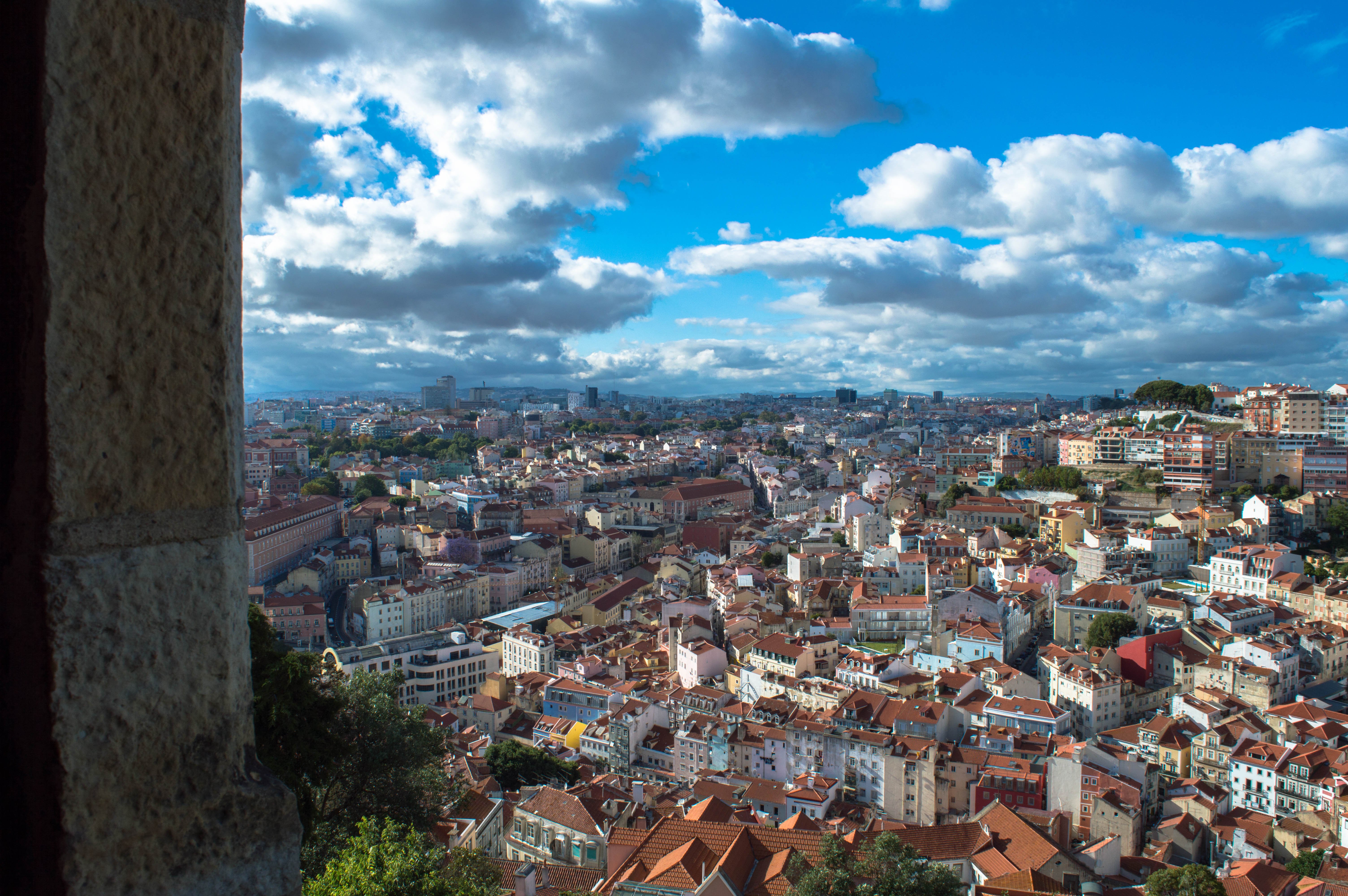
ISO 100 1/320 sec. f/13 18 mm
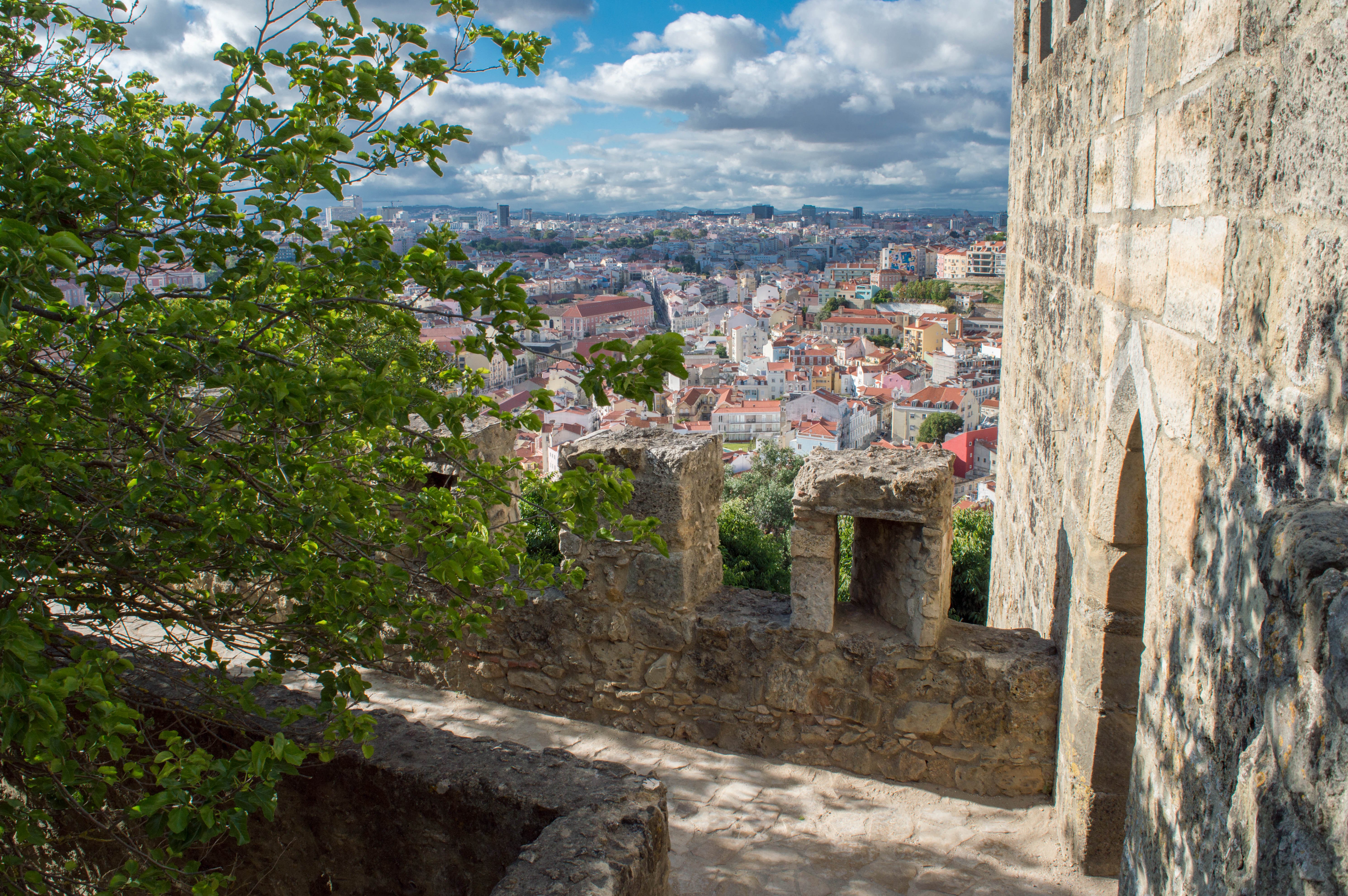
ISO 100 1/250 sec. f/11 18 mm
This collection of buildings provide the most significant evidence of the former medieval royal residence. It is now housing the Permanent Exhibition, cafe and Casa do Leao Restaurant.
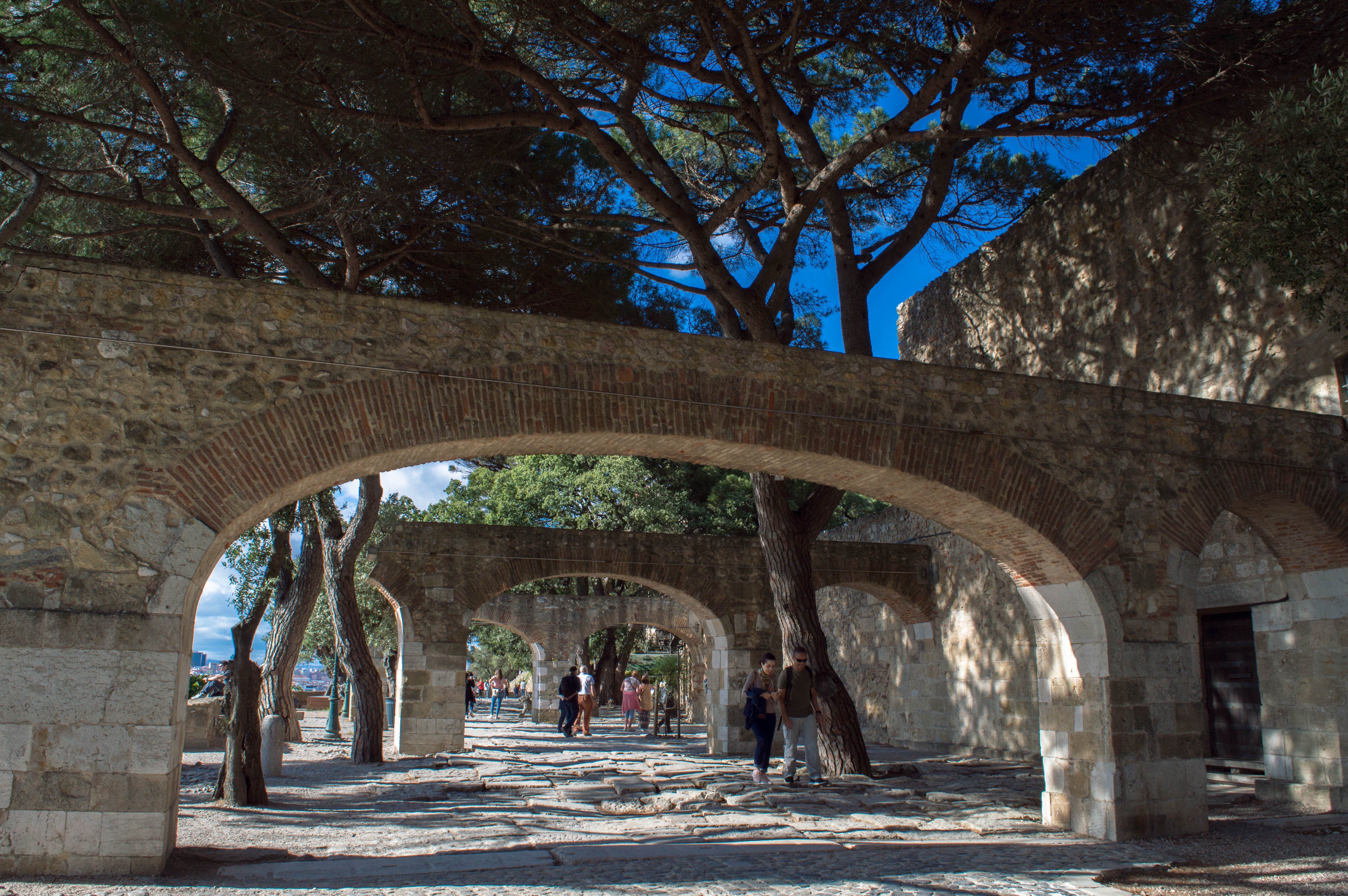
ISO 100 1/250 sec. f/10 18 mm
The castle is located on top of the hill in the place most difficult to access, making use of the natural slopes to the north and west. Although it was repeatedly rebuilt over the centuries, it retains its square plan with two courtyards separated by a curtain wall as well as eleven towers.
The purpose of the castle was to house military troops and, in the case of a siege, the elite who lived in the citadel.
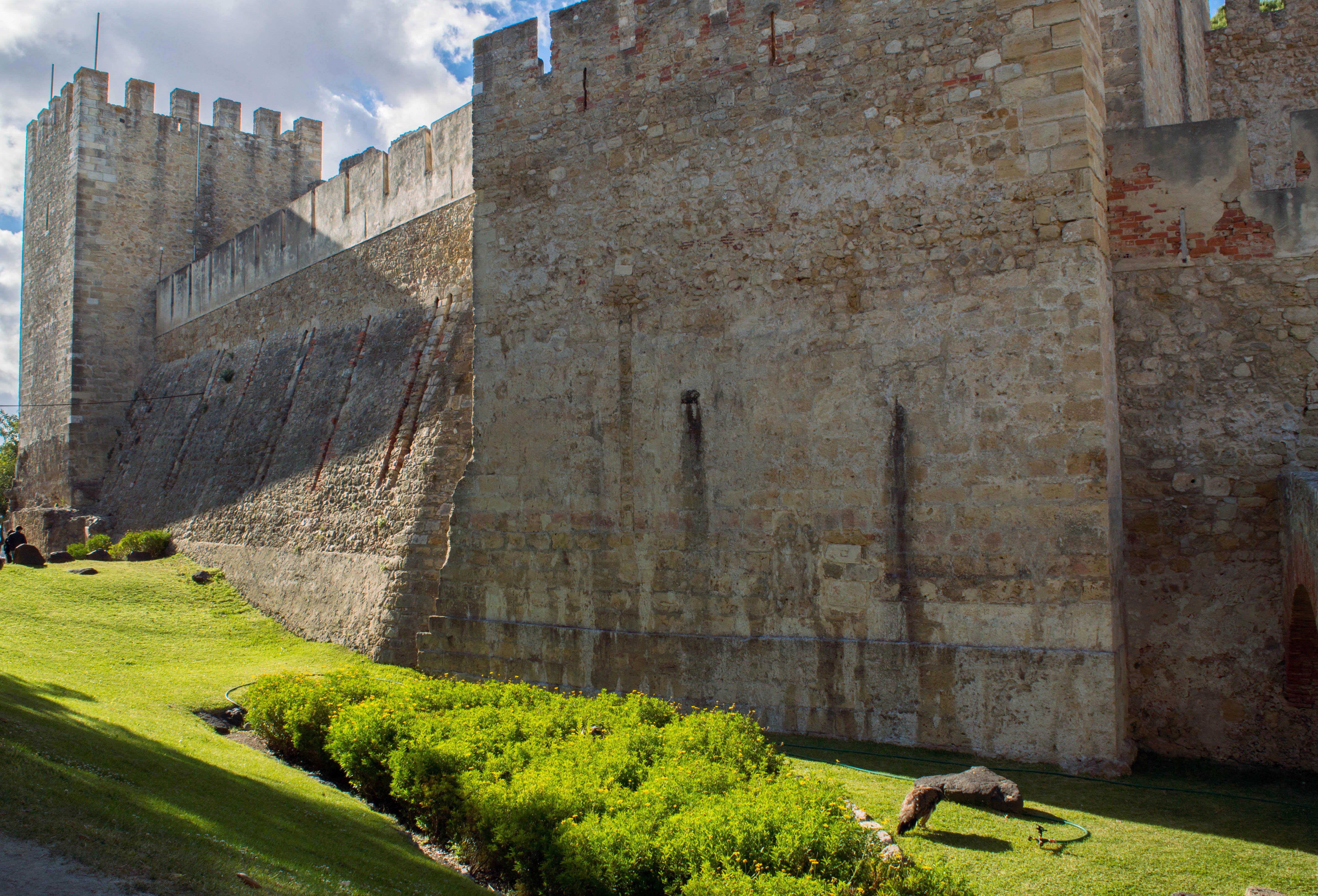
ISO 100 1/320 sec. f/13 18 mm
You can walk around the castle but make sure to have good shoes as the stairs are very steep and stones are slippery. I guess you don't want to fall off the walls 😊
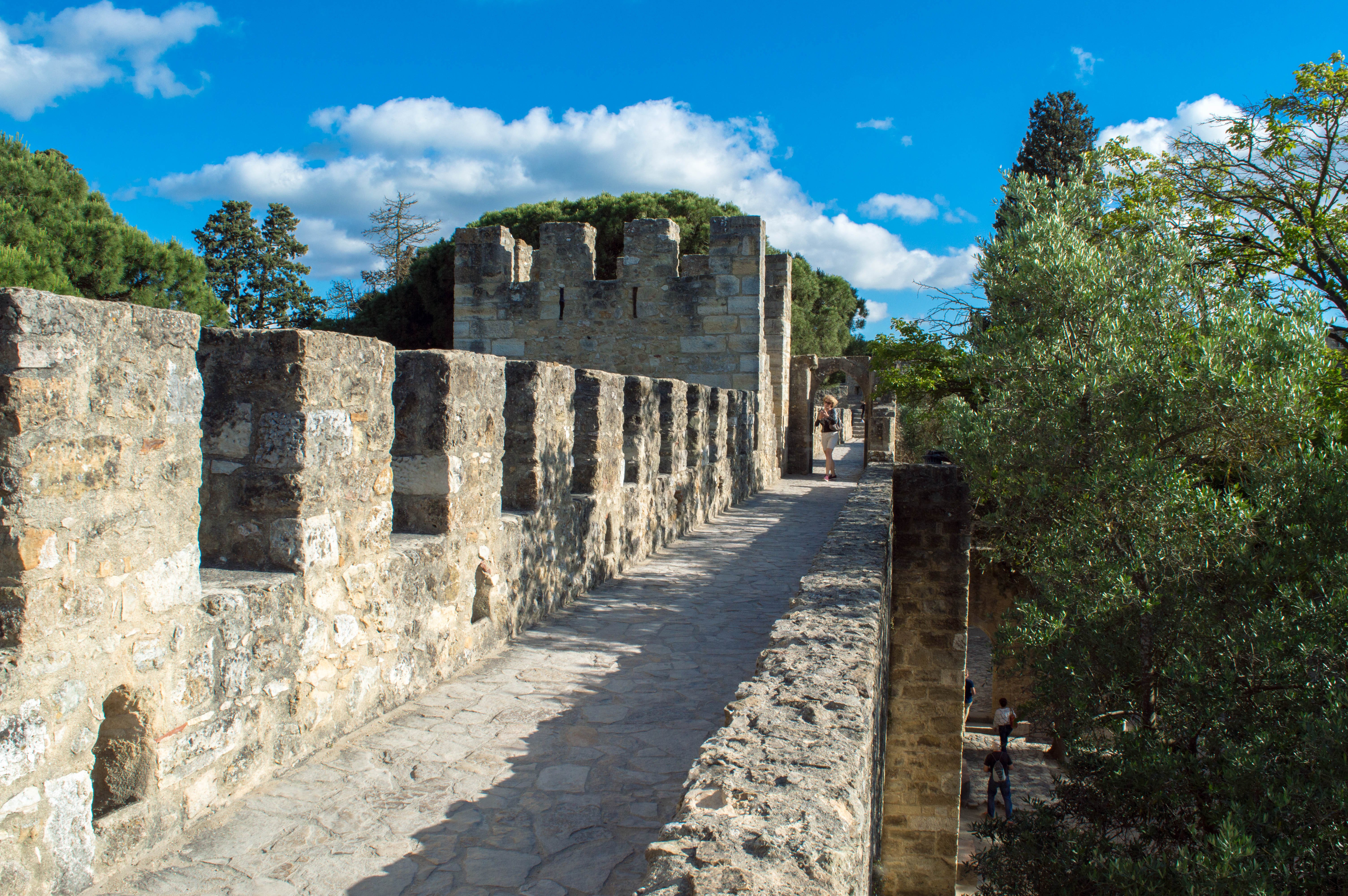
ISO 100 1/320 sec. f/13 18 mm
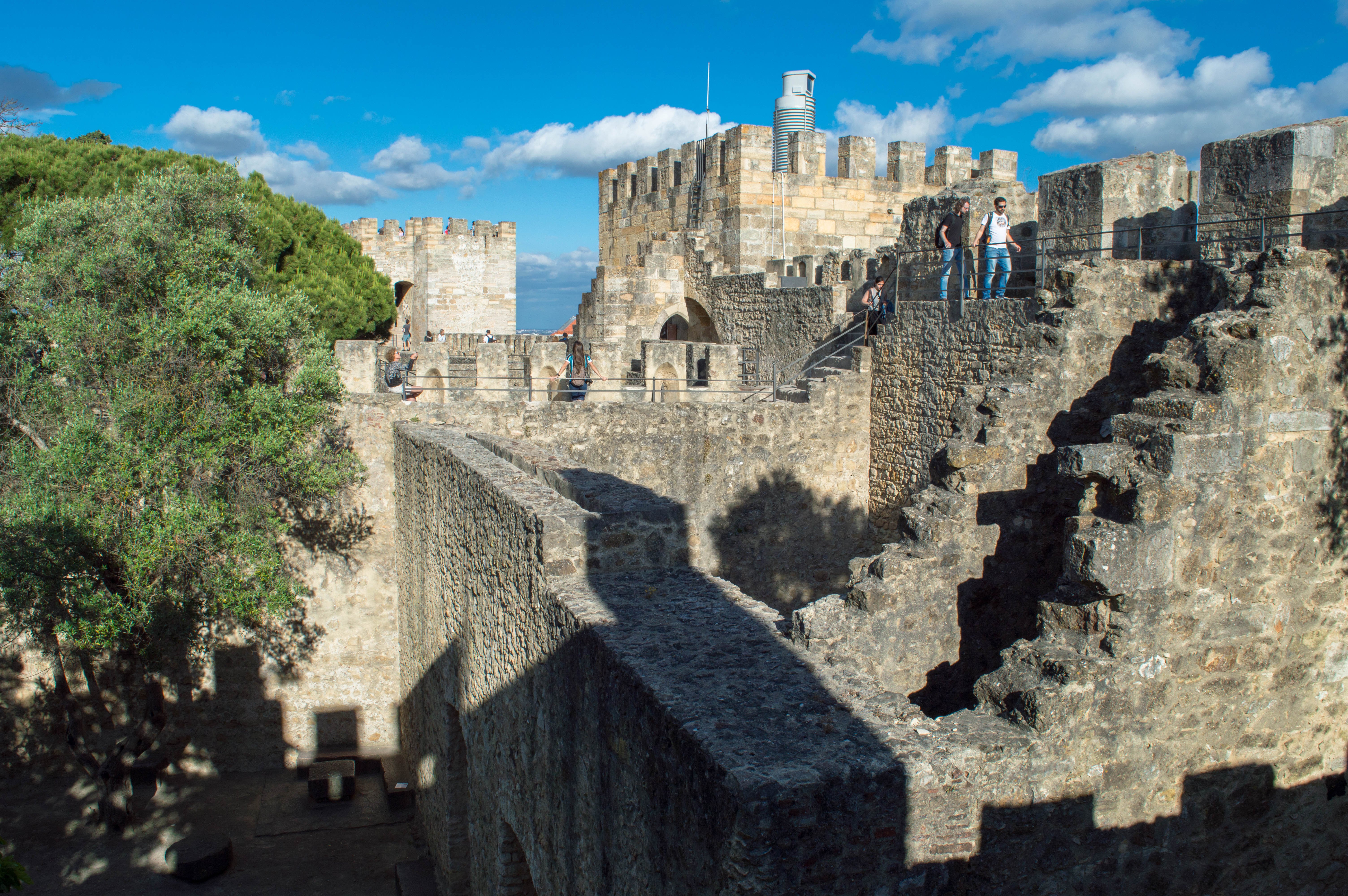
ISO 100 1/320 sec. f/13 18 mm
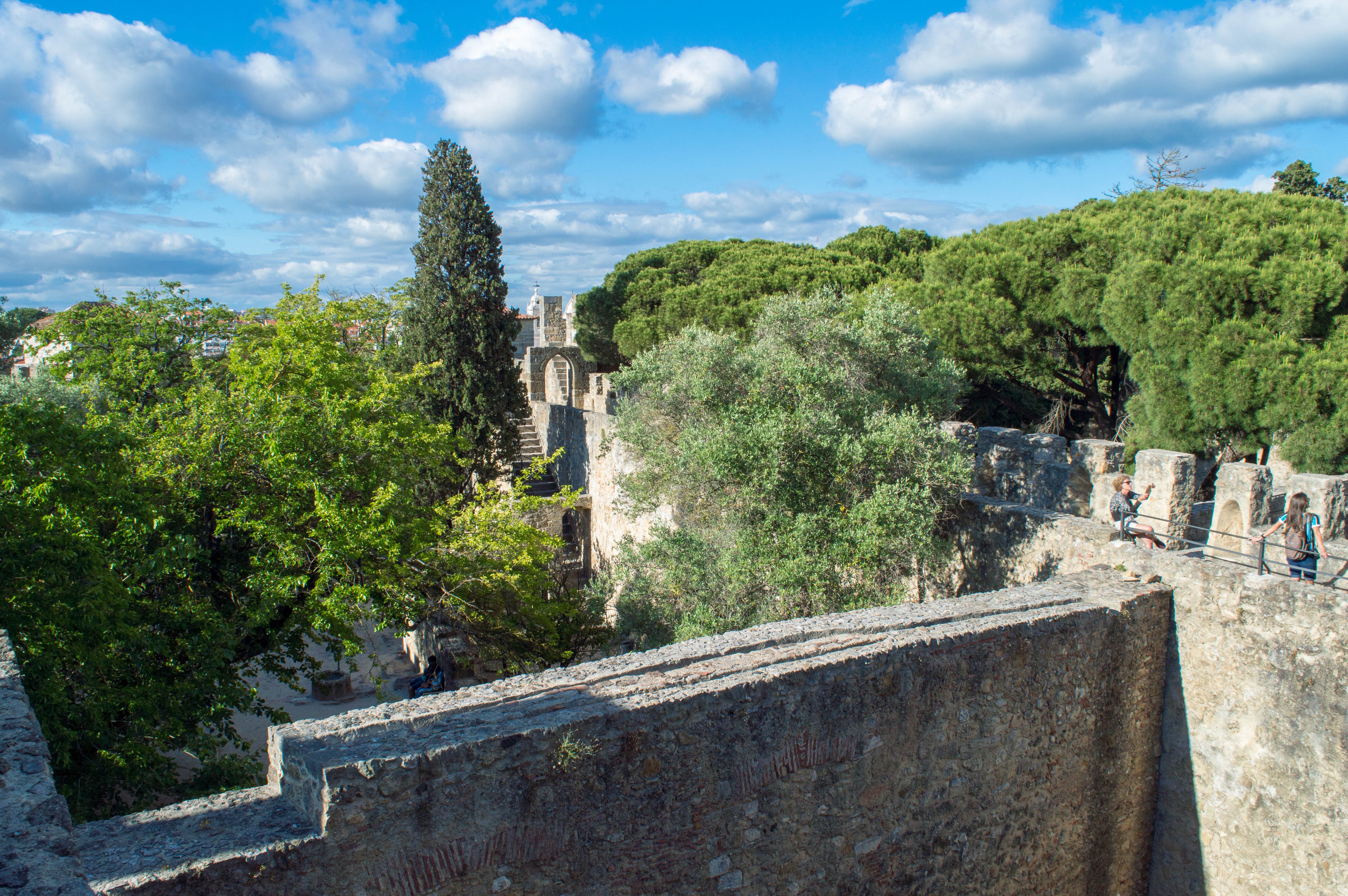
ISO 100 1/320 sec. f/13 18 mm
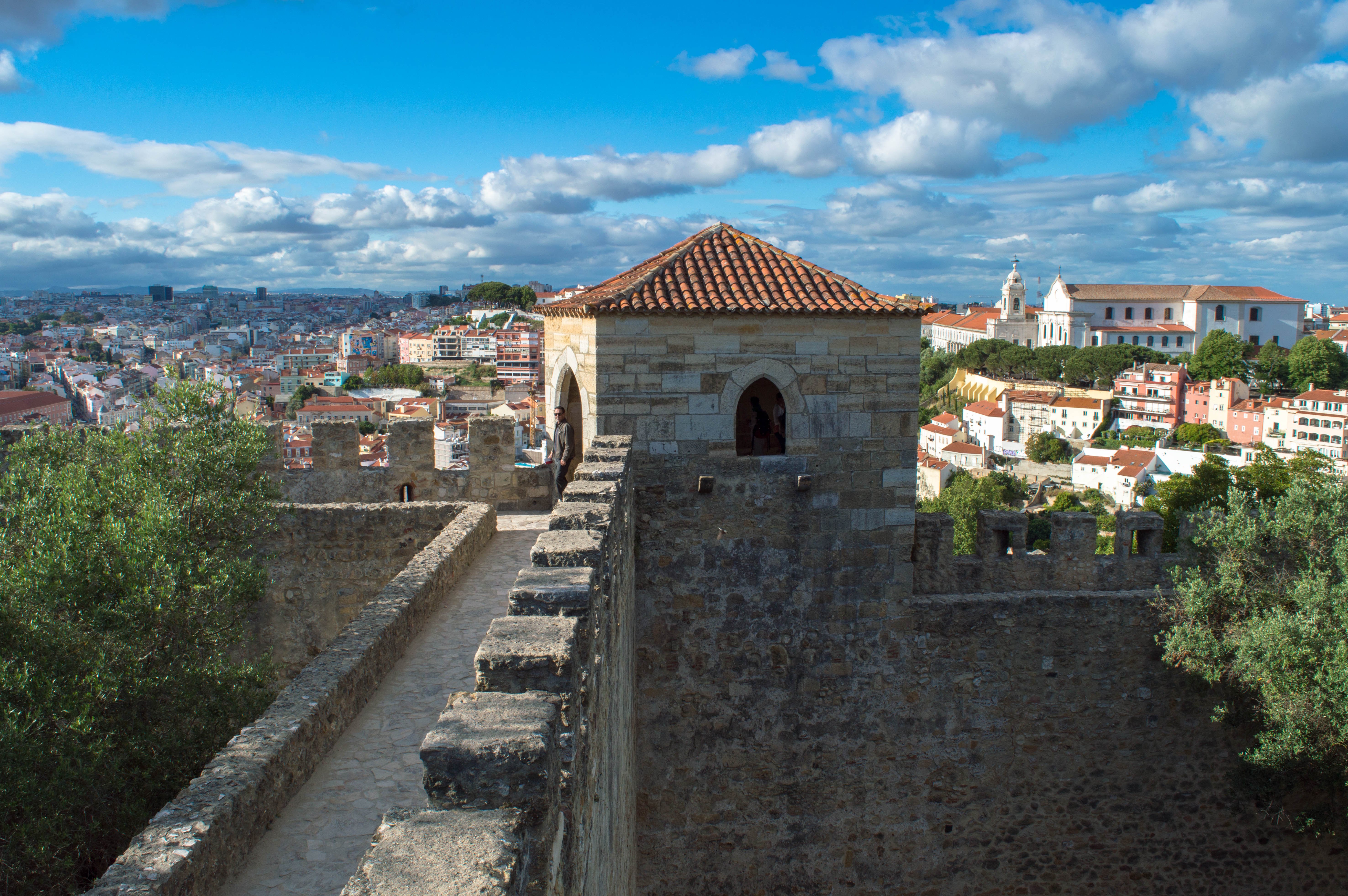
ISO 100 1/250 sec. f/13 18 mm
I have forgotten my umbrella in the room as the weather looked good in the afternoon and I didn't know that it could change so fast in Lisbon. By the time I got back to the hotel it rained a few times and once it caught me unprepared in the middle of a street with no shelter so I got wet as well today 😊
Now I'm back in the room sipping my tea and hoping that I won't get sick.
Thank you for reading and I hope you enjoyed my first day in Lisbon.
If you like my article feel free to upvote/resteem it or follow me.
All pictures are taken by Nikon D3200 AF-S NIKKOR 18-55 mm 1:3.5-5.6 G II.
Cheers,
M.
